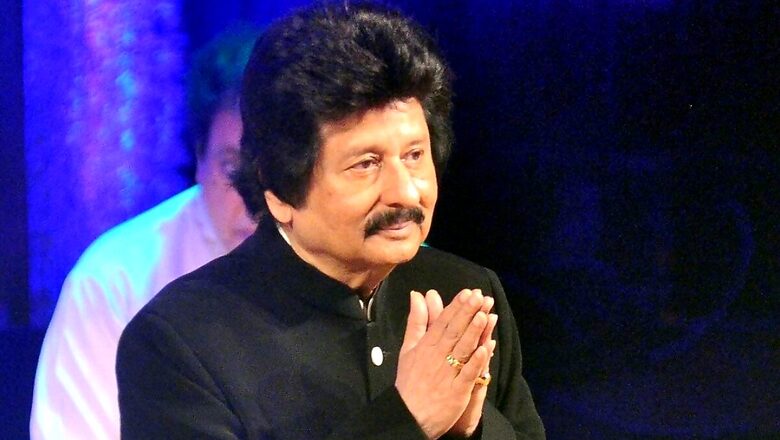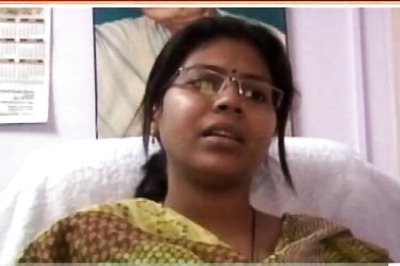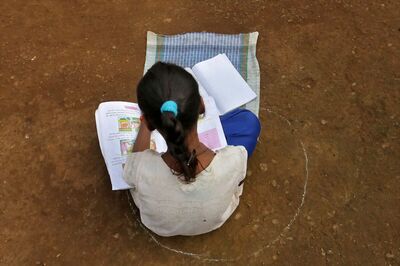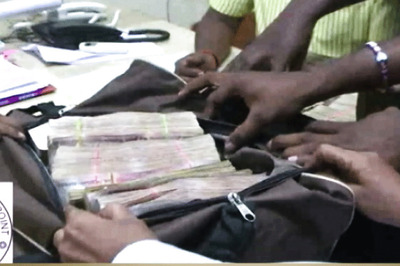
views
The 1980s was a musically different era. A teenager back then, this writer was among those thousands present in a public concert during Durga Puja in Patna’s Gandhi Maidan in the middle of the night. Pankaj Udhas, a rising star of ghazals and popular music, was expected to perform soon.
The crowd cheered loudly after the news of his arrival at the venue was announced. A small group of restless young men rushed towards the stage to watch and hear him sing at close quarters. After these individuals found their desired place or accepted their inability to do it, Udhas took the stage. ‘Deewaron Se Milkar Rona’, ‘Ghungroo Toot Gaye’, ‘Sabko Maloom Hai’: he performed his popular gems one after the other, and those present sang along with him. It was a night to remember.
Udhas appeared on the musical scene in the early 1980s when the popularity of the ghazal was on the rise in India — once again. Pakistani maestro Mehdi Hassan had a dedicated fan following in the country. Ghulam Ali, another brilliant performer from Pakistan, had loyal fans as well. A couple of months younger than Ali, the inimitable Jagjit Singh’s velvety voice mesmerised ghazal listeners everywhere.
Udhas took his first few steps along with a few other gifted Indian ghazal singers. Among them was Talat Aziz, whose impressive debut album ‘Jagjit Singh presents Talat Aziz’ was released in 1980. Aziz’s following increased significantly after ‘Zindagi Jab Bhi,’ his song from Muzaffar Ali’s film Umrao Jaan (1981). Peenaz Masani’s debut album, ‘Aapki Bazm Mein’ featuring the haunting ‘Dil Mein Rakhlo’ was a 1981 release. Many new music lovers were getting attracted to ghazals, in other words, and the timing of Udhas’s arrival could not have been more appropriate.
Born in Rajkot, Gujarat, in 1951, Pankaj Udhas was the youngest among the three Udhas brothers, who aspired for careers as singers in their young days. The first one to experience some success was his eldest brother Manhar Udhas, who sang the hit duet ‘Loote Koi Man Ka Nagar’ with Lata Mangeshkar in the Hrishikesh Mukherjee film Abhimaan (1973). Nirmal, the second brother, is a good singer as well. Pankaj, the youngest, made an impact after the release of Aahat, his debut album, in 1980. Well-composed and hummable, a few songs from Aahat went on to get the kind of recognition they richly deserved. ‘Yeh Alag Baat Hai Saqi’, the first song on the album’s ‘A’ side, became hugely popular. However, ‘Tum Aaye Zindagi Main’ was the first song that Udhas had recorded for the album. Written by his friend Sheikh Adam Aboowala, ‘Tum Aaye…’ was the perfect example of his liking for simple lyrics in his compositions.
Many listeners embraced variety in popular music in the 1980s. While Aahat introduced a new ghazal singer to the masses, Nazia Hassan and her brother Zoheb delivered ‘Disco Deewane’ (1981), an album responsible for increasing the appetite for non-film pop music overnight. The quality of film music had declined, but Khayyam composed the soundtrack of Umrao Jaan (1981), whose captivating songs became simultaneously popular. The non-film ghazal had rediscovered its mass appeal, too, a boon for an artist like Udhas.
Initially trained in classical music and passionate about the ghazal form, Udhas learned Urdu and eventually started performing ghazals in concerts. He released more than 50 albums and also sang for Hindi films in a long career. The artist’s songs had two trademark qualities: melodies an alert listener picked up quickly and accessible lyrics that revealed his desire for reaching out to the masses. His career as a ghazal singer had many highlights, such as ‘Thodi Thodi Piya Karo’, ‘Aap Jinke Kareeb Hote Hain’ and ‘Sharab Cheez Hi Aisi Hai’ that became a permanent feature of his concerts. Popular as a performer in concerts, the impeccably dressed singer cast a spell on the listeners whenever he appeared on the stage.
An article on Udhas will be incomplete without any mention of ‘Chithhi Aayi Hai’ from Mahesh Bhatt’s Naam (1986), whose moving lyrics appealed to the Indian diaspora. While ‘Chithhi Aayi Hai is’, without a shade of doubt, his most popular song, he also sang other hit film tracks, such as ‘Aaj Phir Tum Pe’ in Feroz Khan’s Dayavan (1988) and ‘Na Kajre Ki Dhaar’ in Rajiv Rai’s Mohra (1994). Udhas’s last film song, ‘Raat Bhar Tanha Raha’ in Raja Bundela’s Dil Toh Deewana Hai (2016), was an ordinary effort. The film failed, and the song did not find many listeners on its own either.
A Padma Shri recipient in 2006, Pankaj Udhas’s death at 72 marks the closure of a significant chapter in Indian popular music. What will live on forever are his songs, which will be heard and loved by every fan of ghazals — now and in future.
The writer, a journalist for three decades, writes on literature and pop culture. Views expressed in the above piece are personal and solely those of the author. They do not necessarily reflect News18’s views.



















Comments
0 comment